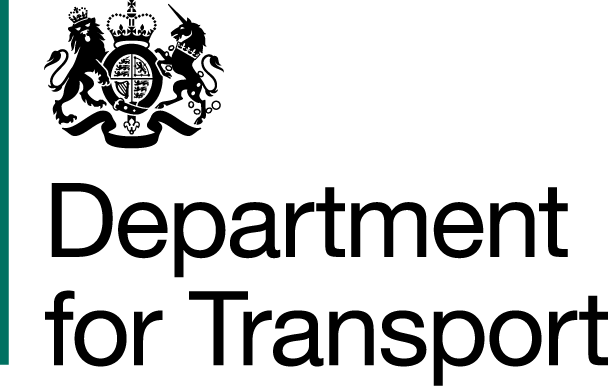Voluntary Application of the Code of Practice for Statistics
Voluntary Application of the Code of Practice for Statistics
The Code of Practice for Statistics provides a framework to produce high-quality, transparent and valuable statistics. The following statement outlines the extent to which Transport for Wales (TfW) has complied with the Code of Practice for 20mph monitoring and analysis.
TfW is wholly owned by the Welsh Government and provides expert advice on transport related matters. We also produce statistics to monitor the impact of Welsh Government policies and progress against transport targets. This includes monitoring for Llwybr Newydd: the Wales transport strategy and monitoring the effects of the default 20mph speed limits on restricted roads.
As listed producers of official statistics (The Official Statistics (Wales) Order 2017), we are motivated by the desire to produce high-quality statistics to inform the evidence base for making important decisions. We understand the importance of demonstrating our trustworthiness and independence from political influence when producing statistics and undertaking our monitoring function. By enabling this accountability, we are serving the public good.
As an organisation, we’re still developing our statistical reporting capacity. At present, we’re unable to publish official statistics. However, we remain committed to statistics and reporting that users have confidence in and serve the public good. The UK Statistics Authority publishes the Code of Practice for Statistics (the Code) that has provided the framework for this development work.
Details on the actions we are undertaking to develop our reporting capacity are published here. This includes the actions undertaken in response to the Office for Statistics Regulation’s recommendations to TfW in November 2023.
Where possible, the 20mph monitoring data have been produced and reported in line with the Code’s three pillars of Trustworthiness, Quality and Value. The following statement explains how the Code has been applied to this publication, and instances where it has not been possible.
We intend future 20mph monitoring statistics to be released as official statistics.
Trustworthiness: Confidence in the people and organisations that produce statistics and data
TfW provides technical advice to the Welsh Government to inform, develop and monitor policy. As an organisation, it does not exercise any statutory functions and is independent from setting policy.
The Geospatial and Strategic Transport Analysis Unit at TfW acts as a key resource to provide the evidence base for several transport schemes and interventions. It is a team of analysts from different backgrounds including statisticians and geospatial experts, with experience in data collection and monitoring. This team is responsible for monitoring the effect that the default 20mph speed limits on restricted roads has on traffic speeds.
We understand that we have not been able to comply with the orderly release principle within the Code. The expected timing of 20mph monitoring releases is documented in section 4.1 of the ‘Default 20mph speed limit on restricted roads: Monitoring framework document’ (September 2023). The actual date and time of release was determined in consultation with Welsh Government policy teams to coincide with other announcements on the topic. As such, we were unable to pre-announce the release of the statistics until within the recommended four-week window. Additionally, the time of release did not comply with the standard 0930 release time. While we have worked with Welsh Government to determine the release timetable, the data and report content remained unaltered.
There is no published list of individuals with pre-release access. Due to changes to the release date of the publications, a small number of individuals had access for longer than the recommended five working days.
In the future, we will ensure we comply with the orderly release principles. This includes pre announcing publication dates at least four weeks in advance and following the standard 0930 release time. Additionally, TfW is working to develop a specific pre-release protocol, informed by the Welsh Government’s release practices protocol. By following this, in the future we will comply with the Code’s guidance on pre-release access, limiting the access window to five working days. Details of individuals with pre-release access will be made publicly available.
An interim report on the national rollout of the default 20mph speed limit, building on the preliminary data released here, has been announced for publication in summer 2024. This interim report will be included on the Statistics Wales release calendar with a specific date announced at least four-weeks in advance, following the Code.
Data for monitoring traffic speeds in the phase 1 areas have been provided to TfW by local authorities. Data related to the national rollout have been collected for TfW by Nationwide Data Collection and Severnside Transportation Data Collection, experts in automated data collection technologies. In both instances, we’ve worked closely with local authorities to ensure that the locations of speed monitoring sites were appropriately selected.
We are working to develop and publish our own policy on data governance to be in accordance with the Code. While this is being developed, we’ve followed the Welsh Government’s policy to prevent the release of identifiable or sensitive data. The data collected and reported on are aggregated and anonymous.
The methods used for analysing data against the key performance indicators (KPIs) in the phase 1 monitoring report and the preliminary national rollout statistics were decided by the Lead Official for Statistics within TfW. Details on the KPIs are explained clearly in Section 2 of the ‘Default 20mph speed limit on restricted roads monitoring framework’ (September 2023), and the methodology for analysis follows industry-standard calculations.
We’re working to develop our own policy on revisions and corrections. When available, this will be published on TfW’s website. Should any revisions or corrections to the statistics be required before this time, we’ll follow the Welsh Government’s revisions and corrections policy.
Quality: Data and methods that produce assured statistics
Data collection has been undertaken at several monitoring sites across different locations for both phase 1 and the preliminary national rollout statistics. These locations were selected in collaboration with TfW’s analysts, local authorities, and speed monitoring experts. The locations of the monitoring sites have been published.
In the monitoring framework document, we noted that there was a risk that changes to traffic speeds may occur, independent from the introduction of the default 20mph speed limit. We have included control sites on comparable roads that remained 30mph in locations near to the phase 1 monitoring areas. By comparing pre- and post-implementation speeds in areas with and without speed limit changes, we can conclude with more confidence whether the changes in traffic speed are due to changes in the speed limit.
Additional areas of uncertainty, such as the effect of recording data at different times in the year on travel speeds, have been highlighted.
To ensure the quality of the data gathered, we talked with local authorities and speed monitoring experts to receive regular updates from the monitoring sites. This ensured any monitoring equipment failures were acted upon and resolved wherever possible. Any further data errors were highlighted by the data collection specialists and have been removed. By collecting data across several monitoring sites within an area, we have limited the impact of equipment failure on the aggregate statistics.
The monitoring indicators to assess the traffic speeds are pre-established and explained in Section 2.2 of the ‘Default 20mph on restricted roads: Monitoring framework document’, released in September 2023 (KPI 1.1, 1.2 and 1.3). This includes details on how the KPIs relate to the policy goals.
The methods used to monitor the KPIs are simple and explained in lay terms. Instances where sites have been excluded from totals or averages are clearly labelled and explained. Erroneous data points, such as vehicle volume with zero mean speed, have been removed.
Additionally, we have chosen to publish preliminary national rollout data. The statistics are based on a two-week post-implementation period, from sites across Wales. A second two-week monitoring period will be completed before the publication of the interim monitoring report on the national 20mph rollout (due summer 2024). This will cover four weeks of pre-implementation data and four weeks of post-implementation data.
As such, the speed data for the national rollout are only preliminary and subject to change. They are also not necessarily representative of the national rollout across Wales. These caveats have been clearly explained alongside the data.
Value: Statistics that support society’s needs for information
The default 20mph speed limit on restricted roads legislation was introduced in September 2023. It is the first national scheme of its kind in the UK and is an important aspect of Llwybr Newydd: the Wales transport strategy. Additionally, it is a policy change that many individuals have experienced first-hand.
The Welsh Government has worked with local authorities during the implementation of the policy and the effects will be reviewed at regular intervals. For some, the 20mph speed limit change has been controversial, and across Wales there has been keen public interest.
The statistics and monitoring reports published provide essential insight for elected officials and the general public. With over 50 million vehicle speeds recorded from across Wales in the phase 1 and the preliminary national rollout monitoring, these statistics provide an authoritative view into how the drivers are responding to the speed limit changes.
The reports and statistics can be used by the Welsh Government and local authorities to provide an evidence base that could inform policy reviews. The analysis and additional data tables also informs the public and enhances their ability to hold elected officials to account.
Speed data relating to the national rollout have typically been recorded in three separate two-week periods. Two weeks is considered sufficient to gather enough data to produce robust statistics for the given time. This is used to provide a preliminary picture of the national rollout in these areas. The automatic traffic count (ATC) data is collected from users passively and has no impact on the journeys recorded.
We have improved our reporting capabilities since September 2023 and are able to publish data tables alongside the technical monitoring report. These data are more granular than the aggregated analysis in the monitoring report to allow users to complete their own analysis.
A short, analytical summary has been published to support data users, explaining the meaning of the statistics and how they are used in monitoring the 20mph policy.
The monitoring report, data tables and summary documents are published in accessible format, compliant with assistive technologies and are fully available in both Welsh and English.
We’ve reviewed the Freedom of Information requests made to TfW following the implementation of the 20mph default speed limit on restricted roads. We’ve also worked with the Welsh Government to understand requests they have received. We will undertake user engagement to better understand how to improve the statistics and analysis for future releases.



